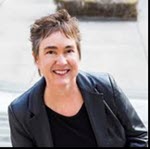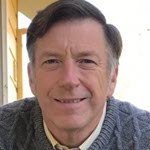
 (Editor’s note: this is the third of six candidate surveys of the Davis City Council, Yolo Supervisor, and Woodland Council Candidates).
(Editor’s note: this is the third of six candidate surveys of the Davis City Council, Yolo Supervisor, and Woodland Council Candidates).
Yolo People Power 2020 Candidate Survey
Yolo People Power is a county-wide network of residents working toward criminal justice reform. To better understand the level of commitment of current candidates for city councils and the Yolo Board of Supervisors races, Yolo People Power invited all candidates to respond to a six-question survey. These were reviewed and scored independently by reviewers from Winters, West Sacramento, Davis, Woodland and UC Davis.
Yolo People Power appreciates the 14 candidates who thoughtfully responded to our questionnaire. These included the following: Supervisor Jim Provenza and Linda Deos; Woodland Mayor Pro Tempore Tom Stallard and candidates Karen Bayne and Victoria Fernandez; and Davis Vice-Mayor Lucas Frerichs, Councilmember Will Arnold, Josh Chapman, Kelsey Fortune, Connor Gorman, Larry Guenther, Dillan Horton, Rochelle Swanson, and Colin Walsh. Their willingness to put their thoughts to paper and to respond to a community group demonstrates a level of responsiveness to community concerns which we  commend.
commend.
The high scorers demonstrated complete answers and awareness of impacted populations. They provided examples of previous reform efforts, offered specific ideas they would support going forward and demonstrated a commitment to civic engagement, particularly with the most impacted populations. A perfect score would be a “4”.
Yolo People Power (YPP) founded in January 2017, was originally focused on policing in Davis. The group soon expanded its scope to all of Yolo County and now has active members from all Yolo municipalities. The group supports policies and programs which prevent crime, assist those in crisis, treat all people with dignity and prepare inmates to reintegrate into communities. Hoang-Van Nguyen of the West Sacramento chapter explains “We recognize systemic and institutional racism and call upon our local governments to undertake the difficult work of transforming public safety from a policing and punitive approach to a public safety model.”
To receive a PDF of all the completed answers, please email YoloPeoplePower@gmail.com. To learn more about Yolo People Power, visit https://www.facebook.com/Yolo-People-Power-104100361133412
Question 6: When there is a conflict between the recommendations between executive staff and the public, how would you decide which recommendation to implement?
BOARD OF SUPERVISORS
 Linda Deos
Linda Deos
First, I would obtain as much information as possible regarding the decision under consideration, the potential for harm or harm reduction, and available alternatives or compromises. For example, this past week the DA shared his proposed budget that was extremely opaque on staff, hours and salaries. His written report implied that were he not to receive his requested budget, his immediate cuts would be taken from popular, restorative justice programs. Because his budget is still so opaque, I would continue to demand a more thorough audit of his budget to ensure that recommended cuts were made in areas of less import. Second, thoroughly review recommendations made from Commissions and other stakeholders. For example, the Cannabis Tax Oversight Committee recommended major changes to the proposed plan on how to spend Cannabis tax revenues. We recommended reinstating funds for children and youth programs and moving funds away from law enforcement. The Board of Supervisors will decide whether to follow our recommendations on September 29. Finally, instruct staff to look for additional alternatives using the input from the Commissions and stakeholders.
 Supervisor Jim Provenza
Supervisor Jim Provenza
I value the honor and value the advice of the public, our staff, other Board members as well as that of experts in field. The advice sometimes conflicts. When it does, I consider all information presented, including public comment, read all materials and often conduct my own research. I then make a decision based on my judgment of what is best for the residents of Yolo County.
Davis City Council Candidates
 Council Member Will Arnold
Council Member Will Arnold
As an elected policymaker, we are tasked with balancing several, often conflicting inputs from a variety of sources. My focus in this regard will always be on what I believe will have the best outcomes for safety and equity of our community. I’m dedicated to ensuring that all of our policies reflect our deeply held values: inclusivity, equity, integrity, and fairness. I will continue my work to reimagine our community safety system in Davis, and work collaboratively with our community toward a new, sustainable approach to public safety.
 Josh Chapman
Josh Chapman
When a conflict occurs, and we know it will, my decision-making process will be guided by my education in Equity & Social Justice; my professional background in mental health awareness; my decade of volunteering and coaching in the Davis community; my experiences as a small business owner in downtown Davis; and finally my interest in raising my two sons in a community they can be proud of. I am certain that there will be divergent view points on many difficult issues facing our city in the coming years, and I am confident that I have the background and values to make the decisions that are in the best interests of our community.
 Kelsey Fortune
Kelsey Fortune
Compromise is incredibly important. However, every recommendation brings with it a perspective and a motivation. It is critical to be able to separate these to achieve the best outcome. For example, the police chief will, understandably, be hesitant to accept any change because the current system puts the power in his hands, and losing power is not something anyone wants. All voices must be acknowledged and respected. My job as a council member would be to speak for the public and negotiate the feasibility of their needs with staff. If there were two recommendations, one from staff and one from the public, I would start with the public’s recommendation and solicit clear arguments against its feasibility from staff. From this point we can negotiate the terms of the public’s recommendation to get staff onboard. I will always speak for the people.
 Council Member Lucas Frerichs
Council Member Lucas Frerichs
I don’t believe there is a single “right answer” to this question. As a councilmember, I weigh quite a few factors into the process of making decisions. I listen to the comments and emails we receive from the public. While I certainly give consideration to the staff recommendation(s), I frequently offer up my own thoughts as to how an issue should proceed. I often do a lot of background research on a given topic, which can involve seeking out outside opinions/expertise, and I routinely look to other jurisdictions for a template involving a similar situation. I’m not a “go along to get along” type of person, and I think I’m known for my thoughtful approach to decision-making and to crafting policy.
 Connor Gorman
Connor Gorman
While expertise is important, democratic processes are as well. There is plenty of expertise in our community in addition to that of city staff. This is true in both the conventional/establishment sense (academics, policy wonks, etc.) as well as in the often-overlooked area of personal experience (for instance, someone who has had a mental health crisis has a form of expertise that is different than the type of expertise a social worker has and is just as important). Therefore, I would account for staff opinions and do so with the knowledge that they’re based on research and a certain type of expertise and my decisions would depend on the exact circumstances and context of a given situation but I would generally support recommendations from the public over those of executive staff. This is especially true if these recommendations are coming from members of the public who have one or more forms of expertise themselves and/or would be disproportionately impacted by the decision.
 Larry Guenther
Larry Guenther
Ideally, of course, recommendations from executive staff would be in concert with the public. As an elected representative of the public, my duty would lie with the community. If the public as a whole wishes something, the choice is clear. Where there is conflict within the community, I feel the role of elected leaders and City staff is to gain consensus within the community. If there is deep contention, it is my belief that the process was flawed. Too often decisions are made that choose sides instead of working toward outcomes that address the needs of all stakeholders. I differentiate here between consensus and compromise. Consensus is a plan that produces desired results for all. Compromise is a plan where every group gets part of what they want. Consensus comes from process. I view the role of executive staff and City Council as creating the opportunity for true community engagement. Staff should present information, risks, and choices in an un-biased way. Where they have expertise, that expertise should be presented in the same light as expertise from other sources, whether from the community, consultants, or research. Decisions by our elected leaders must be evidence-based.
 Dillan Horton
Dillan Horton
The entire reason we elect councilmembers is to have people who are capable of listening to public input, staff advice, and their own knowledge and experience to make balanced decisions for the good of the community. So, if staff always knew best, we wouldn’t need the council in the first place. I think most people who have worked with me, including some city staff, know that I lead with my values and let the chips fall where they may. I serve the residents of Davis, their concerns and interest will be my highest consideration.
 Rochelle Swanson
Rochelle Swanson
As with any decision before Council, I would utilize experts and impacted community members to gauge if a commission, staff’s or a committee’s findings are reflective of the realities on the street. Like the Grand Jury, there needs to be a mechanism for anonymous complaints and ideas. Council members should attend the BRC meetings on a regular basis, but refrain from overtaking or chilling conversation amongst the members. The public’s interaction should not be held until the final report for adoption but should be engaged in the quarterly reports to Council. To foster a welcoming environment for all, ground rules of engagement will need to be adopted and followed. I recommend a workshop like format for the quarterly meetings with a professional moderator. The ultimate goal would be a model of public safety that strives to address the safety of all community members and reflects Davis’ needs and priorities with the willingness to be bolder, less risk adverse and allow more compassionate, yet effective engagement.
 Colin Walsh
Colin Walsh
That is a difficult question to answer in the abstract, and the answer is going to vary by specific situation and depending on how the terms are defined. I value the City staff’s professionalism, but I also value our commissions and members of the public. Davis has a wealth of talent that can be drawn upon to engage in discussions and help make decisions. I would also note that some questions may come down to technical details where experts are more helpful. Others may come down to values choices or be based on local experiences where a much broader range of inputs must be considered. In all cases community expertise and opinion will always weigh heavily for me.
West Sacramento Mayor and City Council Candidates
None of the 7 candidates from West Sacramento responded the survey invitation.
Winters City Council Candidates
Winters is not electing City Council members this November
Woodland City Council Candidates
 Karen Rosenkilde-Bayne
Karen Rosenkilde-Bayne
This is never an easy answer, and it depends upon many factors. I do tend to side with the public, because at the end of the day, I represent them and not staff. I try to look for the feelings and fears behind the issue and examine the values underneath the concerns. I value collaborative decision-making, and if there is an opportunity for a win-win, I will seek it. However, I don’t always side with the public. For example, this year, the WJUSD school Board, of which I am a member, had to decide in early May whether to hold an in-person graduation ceremony on the original scheduled date, or postpone the ceremony until August. 80% of the parents and students wanted to postpone it. I voted not to postpone it. Simply put, the students who join the military or leave for service academies immediately after graduation would not be able to attend. Everybody ought to be able to go to their high school graduation, however it happens, whatever it looks like. It is just not fair to leave anyone out, period. When I vote in open session, I like to explain my thinking. Ultimately, my thinking is guided by what is best for the community and what will do the most to build up the community.
 Victoria Fernandez
Victoria Fernandez
I value the opinion of the public, as I consider myself a public servant. I would evaluate the facts presented by both sides and determine which would be the most effective recommendation for all the residents of Woodland. However, if an Oversight Committee existed, their responsibility would be to uncover the facts and make a recommendation that should be trusted.
 Vice Mayor Tom Stallard
Vice Mayor Tom Stallard
I believe in dealing with “burrs under the saddle” before they fester. We all govern with the consent of the governed. We need to have the discipline to dialogue until we reach consensus so we can move forward together. I support staying with an issue until we, as a community, arrive at a position with which we all can thrive. To me that is the responsibility of leadership.
Support our work – to become a sustaining at $5 – $10- $25 per month hit the link:
